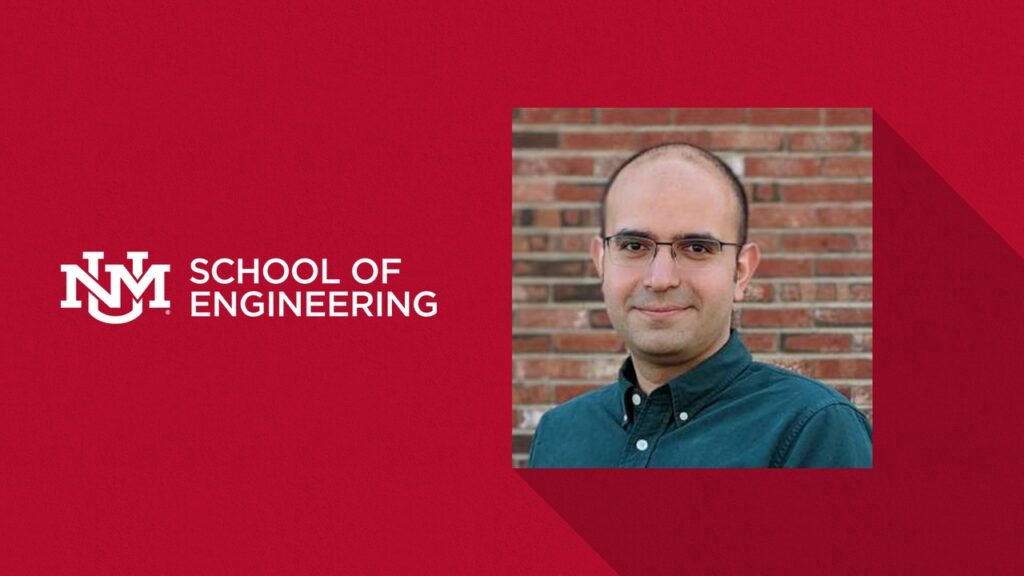Milad Marvian, an assistant professor in the Department of Electrical and Computer Engineering and a member of the Center for Quantum Information and Control (CQuIC) at The University of New Mexico, has received the prestigious Department of Energy (DOE) Early Career Research Program Award.
DOE Early Career Awards provide long-term support for the research of outstanding early-career scientists and engineers at universities and national laboratories.
“It is exciting to pursue fundamental research that has the potential to directly advance technologies for controlling quantum systems,” Marvian said. “This recognition and support by DOE is very encouraging and enables my group to further pursue novel approaches in designing robust control protocols to harness the power of quantum systems in processing information.”
Quantum computing is often described as the next frontier of information processing, but achieving precise control of quantum systems in the presence of noise remains a significant challenge in developing large-scale reliable quantum processors. The five-year award will fund Marvian’s project, “Randomized Protocols for Robust Quantum Optimal Control and Noise Characterization,” which aims to develop strategies to reduce noise in quantum processors through the design of randomized quantum optimal control protocols to implement noise-resilient quantum gates and create better methods for characterizing noise.
The project will explore a new direction in controlling quantum systems through the design of randomized protocols. It builds on recent discoveries by Marvian’s research group, which demonstrate that randomization can significantly reduce noise in quantum systems.
“I expect that by leveraging randomized protocols, our approach can substantially reduce systematic errors arising from imperfect calibration or slowly varying environmental fluctuations in quantum processors, thereby improving the overall fidelity of quantum operations,” he said.
Marvian received a National Science Foundation Early CAREER Award in 2023 to explore the minimum requirements for reliable quantum computation and also to develop low-overhead quantum error correction and fault-tolerant schemes.

